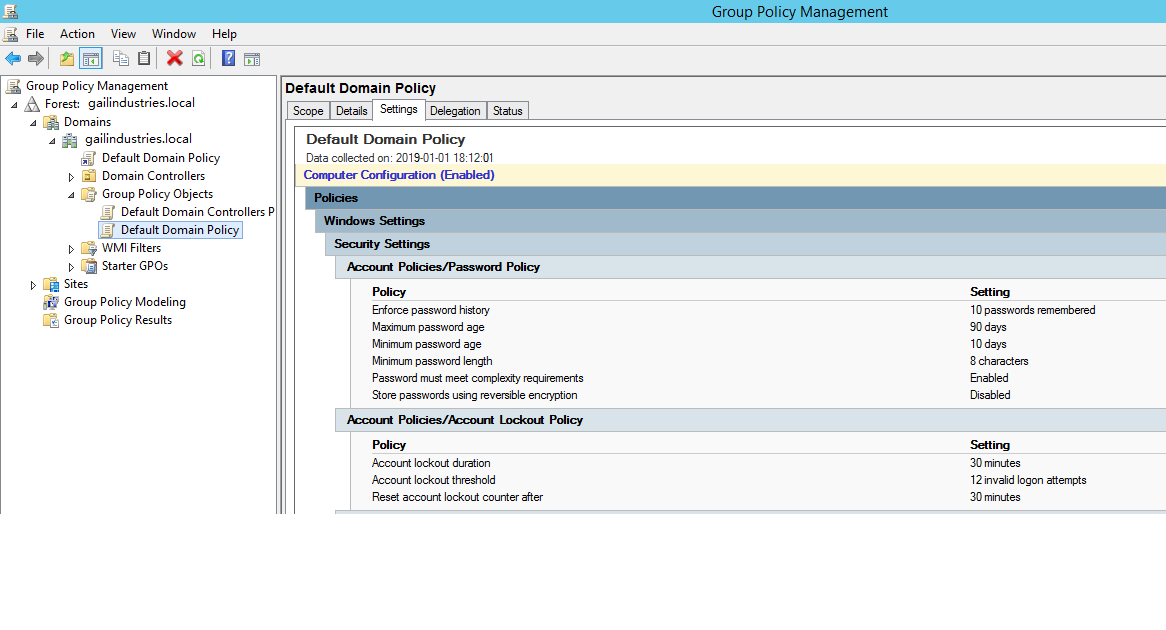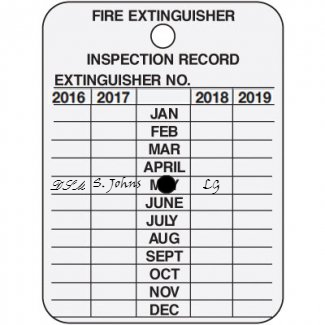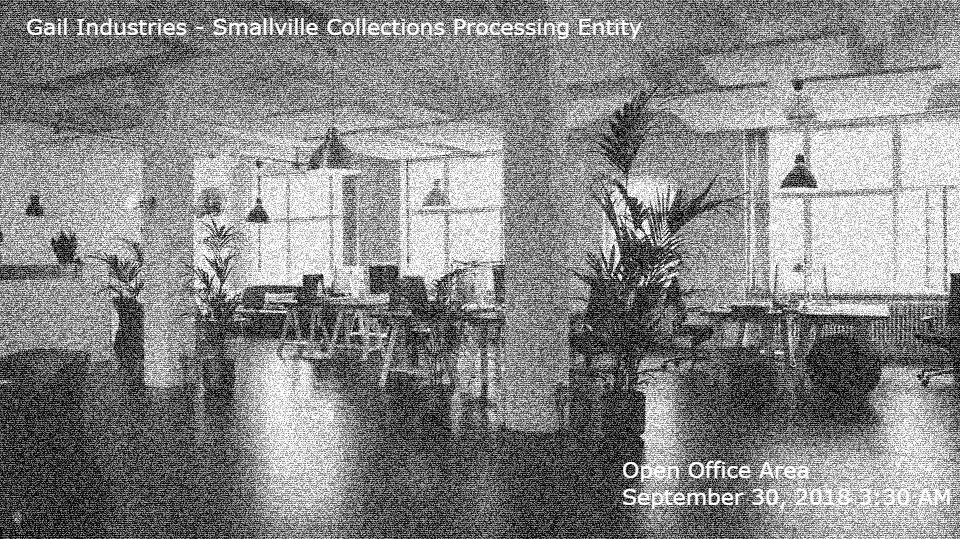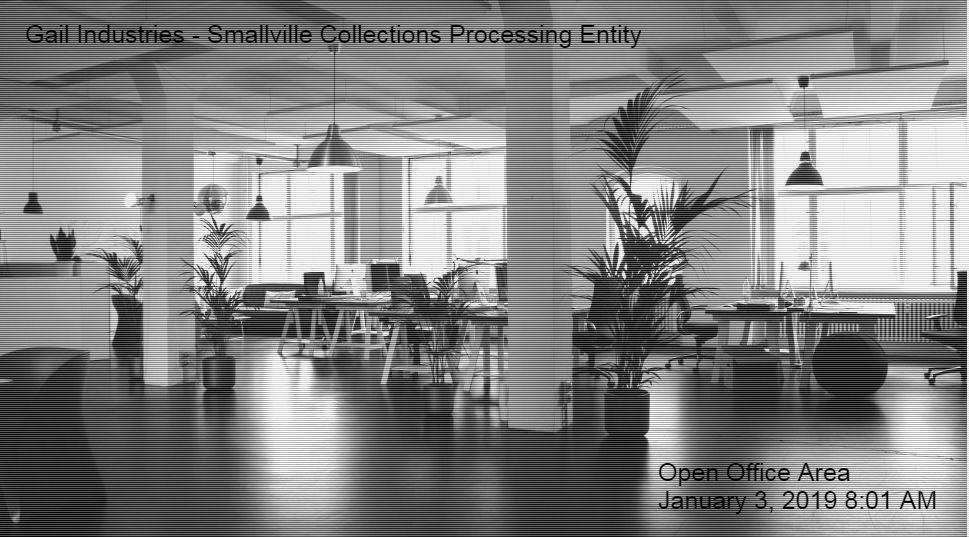Read the Gail Industries Case Study. You will use details from it throughout all 6 weeks of this course. Imagine you are the IT manager for Gail Industries and you are meeting with a new business a
Gail Industries Case Study
This case study is used to complete your assignments throughout the course. Some sections of the case study will be necessary in multiple assignments. See the assignment instructions for specific assignment requirements.
Introduction to Gail IndustriesGail Industries is partnered with many Fortune 1000 companies and governments around the world. Gail Industries’ role is to manage essential aspects of their clients’ operations while interacting with and supporting the people their clients serve. They manage millions of digital transactions every day for various back office processing contracts.
One of Gail Industries’ clients is the city of Smallville. Smallville, despite its name, is a large metropolis seated in the heart of the nation. The city has 2.5 million residents, and the greater Smallville metropolitan area has a population of about 4 million people. Smallville’s IT department follows the NIST 800-53 standards, and the city requires that all IT service organizations, whether run by city staff or vendors such as Gail Industries, follow these standards.
For this case study, you are to assume the following events and dates:
Audit Period: 1/1/2019–12/31/2019
Audit Field Work Dates: 1/3/2020–1/24/2020
The Smallville Collections Processing Entity (SCOPE) provides collections processing services to the city of Smallville. SCOPE receives tax payments, licensing fees, parking tickets, and court costs for this major municipality. The city of Smallville sends out invoices and other collections notices, and SCOPE processes payments received through the mail, an online payment website, and an interactive voice response (IVR) system. Payments are in the form of checks, debit cards, and credit cards. After processing invoices, SCOPE deposits the monies into the bank account for the city.
SCOPE is responsible for ensuring the security of the mail that comes into the possession of all employees, subcontractors, and agents at its processing facility, located within Smallville. Controls and procedures for money and mail handling are established by SCOPE to ensure payments are accounted for, from the earliest point received through processing and deposit. These controls and procedures provide:
Assurances for proper segregation of duties
The design and use of satisfactory documentation to ensure proper recording of transactions
The safeguarding of access to and use of all assets and records
Independent checks on performance
The purpose of collections processing is to receive and process various types of payments, post the payment data to the Central Collections System (CCS), and deposit the accompanying funds in the Smallville bank account. This process includes the following types of payment receipts:
Regular mail – paper checks only
Website – credit and debit card payments, electronic checks
IVR – credit and debit card payments
A bonded courier picks up the payments from the United States Postal Service (USPS) facility in Smallville. SCOPE uses a subcontractor for courier services. This courier is dedicated, picking up and delivering mail, only for SCOPE. This courier is also required to sign for registered, certified, and express delivery envelopes.
Opening and Sorting MailThe daily success of payment processing depends on receiving mail quickly from the postal service, opening that mail, and properly sorting the contents for processing. Batches contain similar payment types: tax payments are processed together, court collections together, and so forth.
DepositsDeposits are made daily into the Smallville bank account. Electronic payments (debit cards, credit cards, and paperless checks) are deposited through an interface between CCS and the bank. Checks are converted to electronic debits and deposited electronically. However, those that cannot be converted to electronic form are deposited in physical form.
Functional Areas of OperationsGail Industries uses the following specific functional roles of operations:
Contract manager – responsible for the overall management of contract deliverables of the payment processing operation, including the monitoring of financial expenditures to ensure compliance with contract budgets
Operations manager – responsible for planning, managing, and controlling the day-to-day activities of the team that provides operational support for the business unit, including the establishment of operational objectives and work plans and delegation of assignments to subordinate managers
Information technology manager – responsible for developing and maintaining the strategy of the future direction of IT infrastructure, including developing plan for the implementation of new IT projects and managing relationships with IT-related vendors and subcontractors
Accounting – responsible for performing a variety of routine clerical and accounting functions within the accounting department, including daily balancing of receipts
In addition, the accountant resolves exception transactions, including returned checks (bounced checks), forgery affidavits, and recoupment.
Call center
The city of Smallville does not have a centralized call center for handling questions relating to payments and invoices. It is considering adding one to the scope of services offered by Gail Industries.
Gail Industries services are designed around the following tools and technologies:
Data Capture and Imaging – real-time instrument imaging and data capture provides imaging, accountability, and reporting of checks and remitted payments
Invoice Management and Reporting – data correction and maintenance utilizing automated payment auditing and historical analysis
A browser-based application is available for internal SCOPE and Smallville staff to perform administrative functions. A separate internet-accessible payment portal allows for citizens, business owners, and others to view invoices and make payments.
Gail Industries currently utilizes cloud-based servers on the Amazon Web Services™ (AWS) platform for Internet-accessible application. Data capture, imaging, and the payment processing applications run on local servers in a secured computer room. Local servers run both Linux® and Windows® Server operating systems. Data is stored on Microsoft® SQL Server® to provide storage of payment, image, and balancing data.
The servers supporting the CCS are housed within the SCOPE server room (also known as the data center) and are managed by Gail Industries’ IT staff. The IT staff provides the following services:
Firewall management – monitoring and management of the firewall systems and networks on a 24/7/365 basis
Network monitoring – proactive network and server monitoring services to help maximize system performance and uptime
Data backup – data backup services for the production, payment, imaging, and balancing data
Incident management – IT incident monitoring, documentation, and resolution management
Control Objective 1: The controls provide reasonable assurance that physical access to computer resources within Gail Industries’ data center is restricted to authorized and appropriate personnel.
To protect physical assets, management has documented and implemented physical access procedures to grant, control, monitor, and revoke access to the on-site SCOPE datacenter.
The datacenter requires two-factor authentication: a biometric credential via retinal eye scanner and a badge access card. Individuals requesting badge access document the request on a standardized employee management form that must be approved by departmental management. Administrative access to the badge access system is restricted to authorized IT personnel.
When an employee is terminated, IT personnel revoke the badge access privileges as a component of the termination process. In addition, the IT manager performs a review of badge access privileges on a monthly basis to help ensure that terminated employees do not retain badge access.
All visitors must sign a logbook upon entering the datacenter and present a picture ID to their escort. Access is restricted to authorized IT personnel and equipment technicians.
CCTV surveillance cameras are utilized throughout the facility and the datacenter to record activity; these images are retained for a minimum of 45 days.
Physical Security (Facilities)Control Objective 2: Controls provide reasonable assurance that physical access to assets within Gail Industries’ facilities is restricted to authorized and appropriate personnel.
To protect physical assets, management has documented and implemented physical access procedures to grant, control, monitor, and revoke access to the on-site SCOPE facility.
A door badge access system is employed to control access to areas within the facility (including the datacenter) through the use of predefined security zones.
Individuals requesting badge access to the facility document the request on a standardized employee management form accessible through Gail Industries’ employee on-boarding system (known as GEO). All requests must be approved by departmental management. Administrative access to the badge access system is restricted to authorized IT personnel.
Upon termination (voluntary or involuntary), SCOPE IT personnel revoke the badge access privileges as a task in the termination process. In addition, the IT manager performs a monthly review of badge access privileges to ensure that terminated employees do not retain badge access.
Both entrances into the facility are locked and are monitored by administrative personnel. The receptionist must unlock the door for visitor access. Visitors are required to ring a video doorbell and announce themselves to the receptionist. Visitors sign a logbook when entering the facility, and they are required to wear a visitor’s badge at all times. Visitors must be escorted by an authorized employee when accessing sensitive facility areas such as the mail room and server room.
CCTV surveillance cameras are utilized throughout the facility and server room to record activity. Video images are retained for a minimum of 45 days.
Environmental SafeguardsControl Objective 3: Controls provide reasonable assurance that environmental safeguards protect physical assets and the data that resides on those assets.
Management has implemented environmental controls to protect physical assets within the datacenter and office facility, including fire detection and suppression controls. The office facility is protected by audible and visual alarms, fire and smoke detectors, a sprinkler system, and hand-held fire extinguishers. A halon-free fire suppression system and smoke detectors protect the datacenter. An uninterruptible power supply (UPS) is in place to provide temporary electricity in the event of a power outage and mitigate the risk of power surges impacting infrastructure to the data center.
Management retains the following inspection reports completed by the third-party vendors as evidence of their completion:
Annual inspection of the fire detection and sprinkler fire suppression system
Annual inspection of hand-held fire extinguishers located throughout the facility
Annual inspection of the fire suppression system
Semi-annual inspection of the UPS systems
Control Objective 4: Controls provide reasonable assurance that changes to network infrastructure and system software are documented, tested, approved, and properly implemented to protect data from unauthorized changes and to support user entities’ internal control over financial reporting.
Documented change management policies and procedures are in place to address change management activities. Further, there are provisions for emergency changes to the infrastructure and operating systems. Change requests are documented via a change request (CR) form. CRs include details of the change, including the change requestor, the date of the request, the change description, and change specifications. Management, through the Change Advisory Board (CAB), holds a weekly meeting to review and prioritize change requests. During this meeting, management authorizes change requests by signing off on the CR form.
Detailed testing is performed prior to implementation of the change in test environments that are logically separated from the production environment. The CAB approves the changes prior to implementation. The ability to implement infrastructure and operating system updates to the production systems is restricted to user accounts of authorized IT personnel.
Logical SecurityControl Objective 5: Controls provide reasonable assurance that administrative access to network infrastructure and operating system resources is restricted to authorized and appropriate users to support user entities’ internal control over financial reporting.
Information security policies have been documented and are updated annually to assist personnel in the modification of access privileges to information systems and guide them in safeguarding system infrastructure, information assets, and data. Infrastructure and operating system users are authenticated via user account and password prior to being granted access. Password requirements are configured to enforce minimum password length, password expiration intervals, password complexity, password history requirements, and invalid password account lockout threshold, as documented in the IT Procedures and Policies document.
The CCS application authenticates users through the use of individual user accounts and password before granting access to the applications. CCS utilizes predefined security groups for role-based access privileges. The application enforces requirements: password minimum length, password expiration intervals, password complexity, password history, and invalid password account lockout threshold.
Payment ProcessingControl Objective 6: Controls provide reasonable assurance that payments received are processed accurately and timely, and processing exceptions are resolved.
Documented payment processing policies and procedures are in place to guide personnel in the following activities:
Mailroom processing
Identification and posting of payments
Research and processing of unidentified payments
Financial reporting
Bank reconciliations
Financial instruments are required to remain within the mailroom during payment processing. When mail is delivered by the courier, both the courier and the mail room supervisor initial the mail receipt log to verify the envelope count received.
Physical access privileges of data entry personnel are segregated from balancing and mailroom personnel. Logical access to processing systems are segregated among data entry, balancing, and mailroom personnel.
Data TransmissionControl Objective 7: Controls provide reasonable assurance that transmitted payment data is complete, accurate, and timely.
SCOPE exchanges payment and invoice information electronically with Smallville via scheduled inbound and outbound data transmissions each day. Smallville provides a list of newly created invoices that were issued on the previous business day. SCOPE receives this information in the CCS application and uses this for processing payments. Each day, all payments processed by SCOPE are sent back to the city of Smallville, which imports this data into its systems.
DepositsControl Objective 8: Controls provide reasonable assurance that deposits are processed completely, accurately, and in a timely manner.
Documented procedures are in place that address the transfer and security of financial instruments, including delivery of the mail from the Post Office (P.O.) boxes to the SCOPE mailroom and the delivery of deposits from the SCOPE mailroom to the bank processing center.
A courier pickup and delivery schedule, outlining the date/times of scheduled mail deliveries by the third-party courier, is maintained and posted in the mailroom. SCOPE utilizes a third-party courier service for delivery of financial instruments to the city of Smallville’s bank.
Partially Collected Audit Evidence GEO/SCOPE Active Employees ReportGenerated 1/3/2020 8:26 AM
| Employee ID | Full Name | Department | Status | Door Badge |
| 10001438 | Andrea Bradley | Administrator | Active | 1902 |
| 10001337 | Cesar Lynch | Administrator | Active | 1904 |
| 10001232 | Darin Young | Administrator | Active | 2048 |
| 10000006 | Gina Carmack | Administrator | Active | 1900 |
| 10000001 | Gail Lucas | Administrator | Active | 1874 |
| 10001232 | Ken Smith | Administrator | Active | 1999 |
| 10001298 | Michelle Adams | Administrator | Active | 2005 |
| 10001396 | Susan Larame | Administrator | Active | 2010 |
| 10001301 | Steve Lenzi | Administrator | Active | 1871 |
| 10001243 | Tessa Hammer | Administrator | Active | 1801 |
| 10001188 | Victoria Brown | Administrator | Active | 2007 |
| 10001156 | Yvonne Vasquez | Administrator | Active | 1869 |
| | | | | |
| 12 Employees Listed | | | | |
GEO/SCOPE Terminated Employees Report
Generated 1/3/2020 8:22 AM
| Employee ID | Full Name | Department | Status | Term Date |
| 10001038 | Alan McDonald | IT | Termed | 6/8/2018 |
| | | | | |
| | | | | |
| 1 Employee Listed | | | | |
Generated 1/3/2019 8:55 AM
| Employee ID | Full Name | Department | Status | Hire Date |
| 10001232 | Ken Smith | IT | Active | 1/3/2017 |
| 10001396 | Susan Larame | IT | Active | 7/5/2018 |
| | | | | |
| | | | | |
Datacenter Visitor's Log
| Date | Name | Title | Organization | ID presented | Escorted By |
| 3/12/2019 | Gail Lucas | President | Gail Industries |
| Alan, IT Specialist |
| 7/2/2019 | Kerry Lark | IT Director | City of Smallville | Driver's Lic. | Ken, IT Manager |
| 7/31/2019 | B. Smith | Technician | UPS Fixit | Driver's Lic. | Susan, IT Specialist |
| 9/8/2019 | B. Smith | Technician | UPS Fixit | Driver's Lic. | Susan, IT Specialist |
| 11/13/2019 | John Wilson | Technician | Fire Suppression Inc. | Business Card | Susan, IT Specialist |

CCS Active Users Report
Generated 1/3/2019 8:26 AM
| User ID | Full Name | System Rights | Status | |
| ABradley | Andrea Bradley | Administrator | Active | |
| AMcdonald | Alan McDonald | Administrator | Active | |
| CLynch | Cesar Lynch | Administrator | Active | |
| DYoung | Darin Young | Administrator | Active | |
| GCarmack | Gina Carmack | Administrator | Active | |
| GLucas | Gail Lucas | Administrator | Active | |
| KSmith | Ken Smith | Administrator | Active | |
| MAdams | Michelle Adams | Administrator | Active | |
| SLarame | Susan Larame | Administrator | Active | |
| SLenzi | Steve Lenzi | Administrator | Active | |
| THAMMER | Tessa Hammer | Administrator | Active | |
| VBrown | Victoria Brown | Administrator | Active | |
| YVasquez | Yvonne Vasquez | Administrator | Active |
Version 1.0, 12/31/2019
Revision History
| Date | Author | Notes |
| 12/31/2019 | Ken Smith | Version 1.0, accepted by client |
Overview
This policy is intended to establish guidelines for effectively creating, maintaining, and protecting passwords at SCOPE.
Scope
This policy shall apply to all employees, contractors, and affiliates of SCOPE and shall govern acceptable password use on all systems that connect to SCOPE network or access or store SCOPE, city of Smallville, or Gail Industries data.
Policy
Password Creation
All user and administration passwords must be at least eight [8] characters in length. Longer passwords and passphrases are strongly encouraged.
Where possible, password dictionaries should be utilized to prevent the use of common and easily cracked passwords.
Passwords must be completely unique and not used for any other system, application, or personal account.
Default installation passwords must be changed immediately after installation is complete.
Password Aging
User passwords must be changed every 60 days. Previously used passwords may not be reused.
System-level passwords must be changed on a monthly basis.
Password Protection
Passwords must not be shared with anyone (including coworkers and supervisors) and must not be revealed or sent electronically.
Passwords shall not be written down or physically stored anywhere in the office.
When configuring password “hints,” do not hint at the format of your password (e.g., “zip + middle name”)
User IDs and passwords must not be stored in an unencrypted format.
User IDs and passwords must not be scripted to enable automatic login.
“Remember Password” feature on websites and applications should not be used.
All mobile devices that connect to the company network must be secured with a password and/or biometric authentication and must be configured to lock after 3 minutes of inactivity.
Enforcement
It is the responsibility of the end user to ensure enforcement with the policies above. If you believe your password may have been compromised, please immediately report the incident to the IT Department and change the password.
Courier Deposit Log
(No entries after 2/14/2018) |



Recently, the city of Smallville has asked Gail Industries to expand the scope of the SCOPE contract by starting up a call center operation within the facility. This call center would handle hundreds of telephone calls placed by those who receive invoices from the city on a daily basis. Callers would be able to talk to a customer service representative (CSR) to check their account balance (ensuring payments had posted), dispute invoices received (which will be investigated by city of Smallville personnel), and accept credit card and debit card payments over the telephone.



